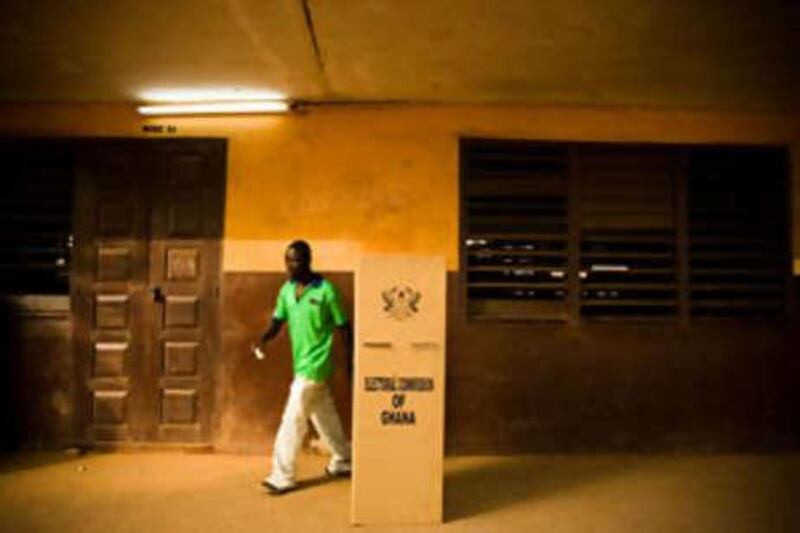ACCRA, GHANA // Ghanaians voted on Sunday in a deciding poll to choose a president for Africa's newest emerging oil producer, in an election many hope can salvage the continent's battered democratic credentials. In the capital Accra and across the West African state, which is the world's No. 2 cocoa grower, queues formed outside schools and other public buildings where polling stations were operating, guarded by armed soldiers and police.
The presidential contest pits Nana Akufo-Addo, of the previously ruling New Patriotic Party (NPP), against the opposition National Democratic Congress (NDC)'s John Atta Mills, after neither managed an outright win in the Dec 7 first round. Both are foreign-trained lawyers, both 64 and both have pledged to maintain the stability and economic growth of recent years which have made the former British Gold Coast colony a favourite of investors on a turbulent continent.
In the close-fought first round, Akufo-Addo finished first with just over 49 per cent, more than one percentage point ahead of Mills, but he failed to gain the more than 50 per cent of votes required to carry the ballot. Analysts say the presidential election could go either way. Voter turnout, at nearly 70 per cent in the first round, could be key to deciding a winner. A higher turnout would favour the NPP's Akufo-Addo, while a lower turnout - traditional in second rounds - could boost the chances of the NDC's Mills.
The vote comes as Ghana, which is also the continent's second largest gold producer, is preparing to start producing oil in commercial quantities from late 2010. Analysts see possible downside risks in the outcome from Sunday's vote, which follows the NPP losing its majority in parliament in the legislative elections held on Dec 7. "Either way, the next president of Ghana -- whether from the NPP or the NDC -- is likely to face a hostile and acrimonious parliament that his party won't be able to easily control," Sebastian Spio-Garbrah, Africa analyst of the Eurasia Group risk consultancy, wrote in a recent briefing note.
* Reuters





